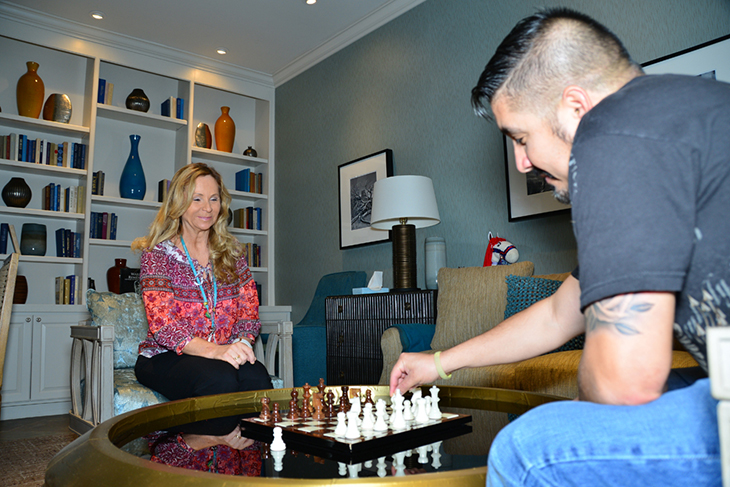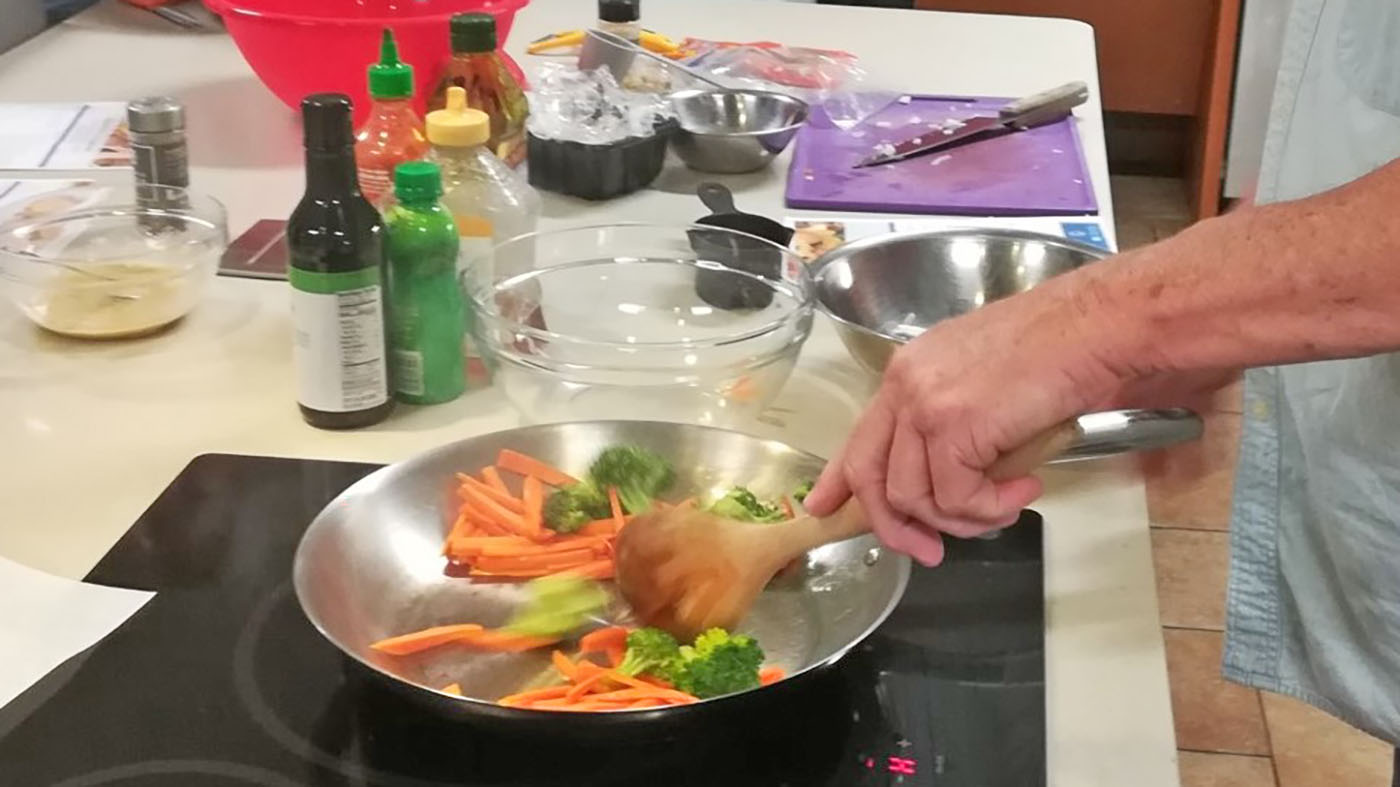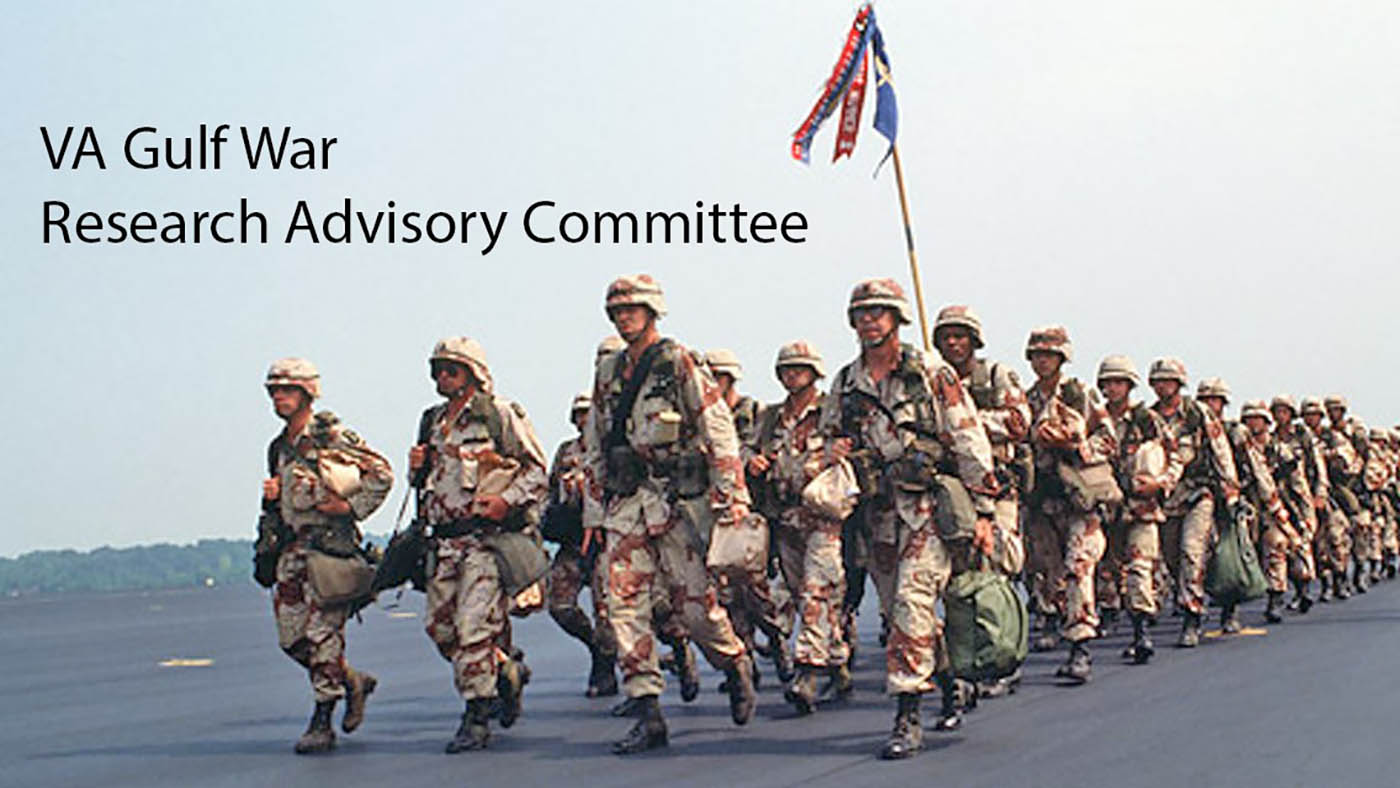This article originally appeared on the Southern Arizona VA Health Care System’s website.
Veterans in Southern Arizona who face serious mental health challenges have allies at the Tucson VA. Staff from the Mental Health Intensive Case Management (MHICM) program will come alongside these Veterans 24 hours a day, seven days a week to support them and address any urgent mental health needs they may have.
Not only do they provide intensive case management support and intervention for seriously mentally ill Veterans, they also work to empower these Veterans to live out their dreams and goals.
The MHICM staff at the Tucson VA consists of four social workers and three nurses that serve Veterans living within 20 miles of the Tucson VA’s main campus who work hard each day to earn the trust of mentally ill Veterans.
The Veterans they work with are diagnosed with schizophrenia, bipolar affective disorder, severe PTSD and other serious mental health issues. These Veterans tend to use the most resources, which include psychiatric hospitalizations, emergency department visits, law enforcement engagement and crisis services. Also, many of the Veterans in the program have a history of homelessness or have substance abuse problems that must be taken care of as well.
“MHICM work is very difficult,” said Robin Toole, a supervisor at the Tucson VA. “We are working with Veterans who may not recognize the need for help and live in places that pose serious health and safety concerns. We are also working with a population that is often stigmatized for being mentally ill.”
Staff will partner with Veterans and do their best to help give their lives meaning. They will coordinate care for the Veteran and connect them with VA and community resources. They also help Veterans overcome barriers to recovery, such as transportation, medication adherence and money management. For many Veterans in the program, MHICM staff are the primary support they have for recovery.
“Most of the Veterans enrolled in this program have no family or social support systems as they have been alienated from their families for many years, and some of the most severely mentally ill Veterans don’t even know where their families are located,” said Toole.
Most importantly, the MHICM staff challenges these Veterans to set goals and dream big.
“We want these Veterans to thrive, doing things that they never though would be possible in their lives, whatever that may be,” said Toole.
According to Toole, the MHICM program follows a recovery based model for mental health healing, which allows the Veteran to take an active role in their own recovery through support from the MHICM staff. The ultimate goal for all involved is the Veteran successfully reintegrating into the community.
Some of the positive outcomes of MHICM staff at the Tucson VA have included helping a Veteran travel to a foreign country. They have assisted Veterans in earning advanced degrees and finding meaningful employment. They help Veterans reconnect with loves ones after many years of separation and estrangement. They have even provided assistance and support to Veterans with end of life issues, so that their eventual passing is with dignity and honor.
“The work is very difficult, and every day the MHICM staff puts themselves in hazardous situations to serve Veterans. However, it is also very rewarding knowing that we positively impact the lives of good men and women that have sacrificed so much for us in their service to our country,” said Toole.
About the author: Luke Johnson is a public affairs officer for the Southern Arizona VA Health Care System.
Topics in this story
More Stories
VA promotes early nutrition intervention for chronic kidney disease with targeted programs like Heathier Kidneys Through Your Kitchen.
VA Research Advisory Committee on Gulf War Veterans’ Illnesses hosting Veteran Engagement Sessions in Phoenix for 1990-91 Gulf War Veterans.
Navy Veteran and president of the American Medical Association got a colonoscopy and encourages other Veterans to do the same.








I tried to get a plat for 5 years. Went to DEL. AND PA. Findlay ,went to dentist out side V.A. had teeth 1 week?